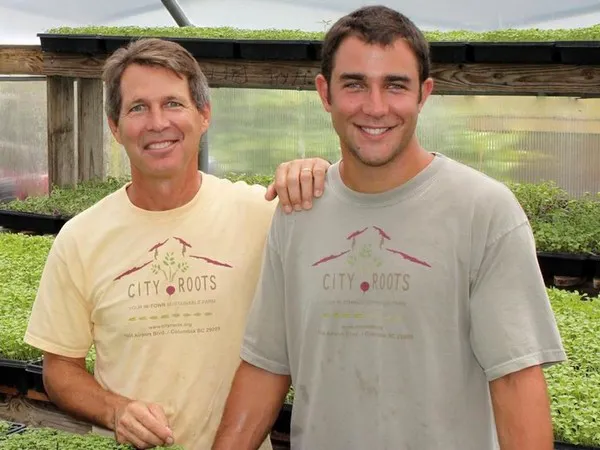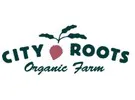In an expanding space such as indoor and greenhouse growing, how do you make your company stand out? For City Roots Organic, it starts with the story. The company is a South Carolina-based family-owned business that specializes in one item: organic microgreens.
"The microgreens market is increasing. We've seen some people getting out of microgreens that were in the indoor vertical space due to cash flow, etc.," says Eric McClam of City Roots. "We will always be certified organic, and we'll always continue to grow in soil, in sunlight, and in greenhouses. Sunlight is free, and soil is regenerative, and the approach is driven by sustainability and economics."
City Roots has been growing microgreens year-round since 2009. While it first began with field production as well as greenhouse-growing, in the past few years, it has phased out organic field production to do only indoor microgreens in its eight-acre indoor farm, and that's now the basis of the business.
In that time too it has also streamlined its product offerings which currently include arugula, mustard, snow pea, sunflower, kale, radish, rainbow, and broccoli microgreens. "We've gone from growing 20+ varieties to 10, so we've narrowed our scope of what we produce, and that's been driven by demand but also operational successes and streamlining," says McClam.
 Robbie McClam and Eric McClam.
Robbie McClam and Eric McClam.
Starting with chefs
In fact, when it began in 2009, the company's product appealed to largely local chefs. "At that time, we were a small CSA farm going to farmer's markets, so we had to educate the general public as to what microgreens were," said McClam. However, in 2015, Whole Foods brought the product on board, one of the first retailers to do so, and that ultimately led to subsequent retailers and food service clients signing on.
"Now, following the pandemic, we've gained more regional grocery retailers who are more aware of microgreens. There's been more of a focus on nutrition for consumers from the pandemic, and microgreens are a healthy superfood option," McClam says. "However, there are also more microgreen growers in the market, and that's been driven predominantly by some larger vertically integrated indoor growers, which is a different methodology from us."
While in retail, customers are often drawn to microgreen varieties they recognize--think broccoli, kale, and arugula--chefs often opt for more colorful mixes involving red and purple microgreens for a unique look on the plate.
![]() When City Roots began in 2009, it was a small CSA farm going to farmer's markets. McClam says it had to educate the general public as to what microgreens were.
When City Roots began in 2009, it was a small CSA farm going to farmer's markets. McClam says it had to educate the general public as to what microgreens were.
Operational efficiencies key
City Roots' strategy looks to be working, given it's in the middle of building a new facility in South Carolina, a 75,000-square-foot greenhouse. It's also going to encompass operational efficiencies, given it will have solar energy and geothermal energy for radiant floor heating and cooling for the microgreens.
"My dad and I are not only co-owners, but we're previously architects, so we're using our design background. We're trying to be efficient in production and also economically," says McClam. "Our pricing has plateaued despite the fact that the costs of containers, utilities, and more have increased. That's really pushed us to improve our operational efficiencies and the cost of production."
The project also offers much-needed additional capacity. "It's catching up on scale. We've got more demand than we can handle, so the quicker we can finish this project, the better," says McClam.
 For more information:
For more information:
Eric McClam
City Roots Organic Farm
Tel.: +1 (803) 254-2302
https://cityrootsfarm.com/
